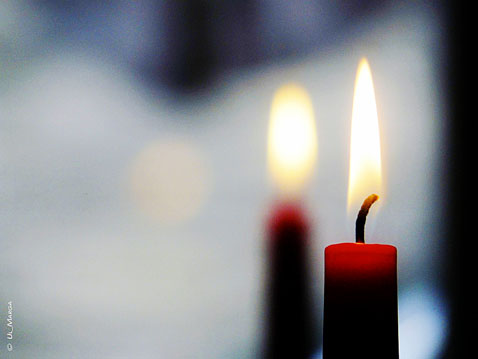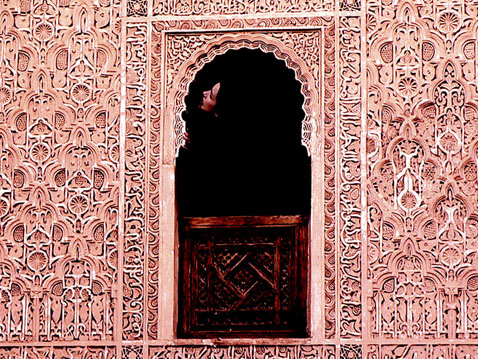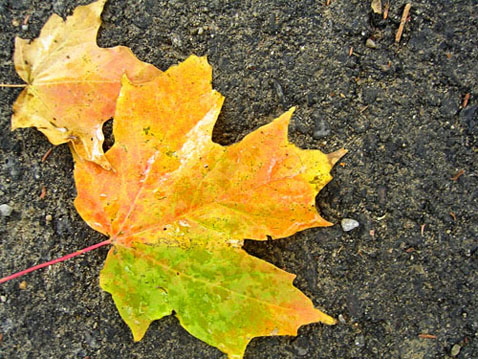you keep on walking
/Natalie of Lunardreams is mother to Devin, her first child conceived through IVF who died after 35 weeks due to a rare case of amniotic bands constricting the umbilical cord. Natalie has become a passionate infertility and stillbirth awareness advocate, among other things, and joins the 'Are You There, God? It's Me, Medusa' blogolympics table as a lifelong Atheist.
Natalie has a love of all things facts and figures—computer programming, physics, astronomy and math. “I see beauty in the world around me in these numbers and random patterns,” she explains. “There may not be a purpose or a guiding hand, but there is still beauty. I feel like I'm walking away from this tragic loss a wholly different person than I walked in. And yet, underneath it all, the foundation remains the same. I just have a different perspective now. Life seem a little more gritty, a little more real.”

I have always been an Atheist. I had some brief introductions to religion, but on the whole I was raised on science and facts. That is how I lived my life.
So when my son died I had no spiritual anchor to latch on to. There were times when I contemplated a deity, a plan—times when I tried out these ideas that others told me would bring peace and enlightenment. I understood then why people cling to their religion. I know too well now that in times of great grief you hold onto any bit of sanity you have... any thought that makes you feel even a little bit better, you hold on for fear that you will lose your mind. I understand why. But they all seemed disingenuous to me, the lifelong Atheist... like I was trying on someone else’s clothes.
Instead, I enveloped myself in the data: information about stillbirth, amniotic band syndrome, loss. I calculated percentages and risks. I took comfort in the numbers, as if understanding the calculations brought me closer to understanding the situation, closer to coming to terms with this horrible, unspeakable thing.
Some days I feel like the grief that overwhelms me is unique to the Atheist.
My son is not in heaven, I will not see him again, he is not in a better place. He is simply gone, erased from our lives leaving behind small physical scars and gaping emotional ones. Frequently I felt overlooked when people came offering their condolences. I know they came from a kind place, a caring place, and I tried to take that for what it’s worth, but how do I react when someone says my son is in heaven? Or that god had a plan? I don’t believe in heaven or god. Instead of feeling comforted I would find myself fighting the urge to explain my religion. To say No, you don’t understand.
We were uncomfortable with the idea of a funeral or wake—uncomfortable beyond the fact that we didn't really know what was acceptable for a baby who had been born dead. Our families had never dealt with this before. There was no path for us to follow.
So we made our own.
We invited family to our house on his due date. I framed his photos, a poem, I set up a table with the little baby items that meant the most to me. I wanted people to understand him. Above all, I wanted them to know who he was. Then at 7 PM—the time of his birth that day he was born so quietly—we gathered outside in our yard to plant a tree. This was our service, this was our acknowledgement of the cycle of life.
I wept as the tree roots were covered with soil, wept for my son who would be buried in the ground soon enough.
::
One thing became very clear to me when Devin died: it’s the people left behind who suffer. I do not worry about Devin, his flickering conciousness extinguished before he really gained a sense of self. He lived and died whole, cradled in my womb.
It is me who is broken. It is me that I weep for, and my husband and our families.
We will never get to see our child smile. We will never get to hear his first words. But more than that, we will never know what kind of person he would have grown up to be. It is us left holding the empty bag of promises, us who carry around the questions that will never be answered.
Over the past seven months I’ve often asked myself what keeps me going. Why wake up in the morning when there really are no guarantees? Bad things happen to good people for no reason, when you least expect it. The loss of my son feels like a huge, gaping hole that will never close—and there is nothing, no one, that can close it. There have been many times when I thought about how it would be a relief to stop feeling anything. A relief to go to sleep and not wake up. Not to be with my son, but simply to stop the pain.
But every time I start thinking like that I realize that what seems like a choice really isn’t.
This is my life, my only one—this is all I get. I do not get to pick and choose what I get to experience. I know that one day I will experience joy again—not the same type of unfettered, naive joy that I did before, but joy nonetheless—and the only way to get there is through this hell. Just as I know that bad things can strike out of the blue, so too I know that it can’t always be all bad. The dice will come up both evens and odds—sometimes more evens, sometimes more odds.
::
I understand grief now. You must rant and cry and turn it over in your hands, throw it against the wall. You’re always stuck with it in your pocket, but after a while you start to become more familiar with it. You mould it like clay. You poke holes in it, stretch it out, roll it out flat. And then you keep on walking.
After all, no matter what our faith (or lack thereof), no matter what we believe is the why or how, that is all any of us really do.






